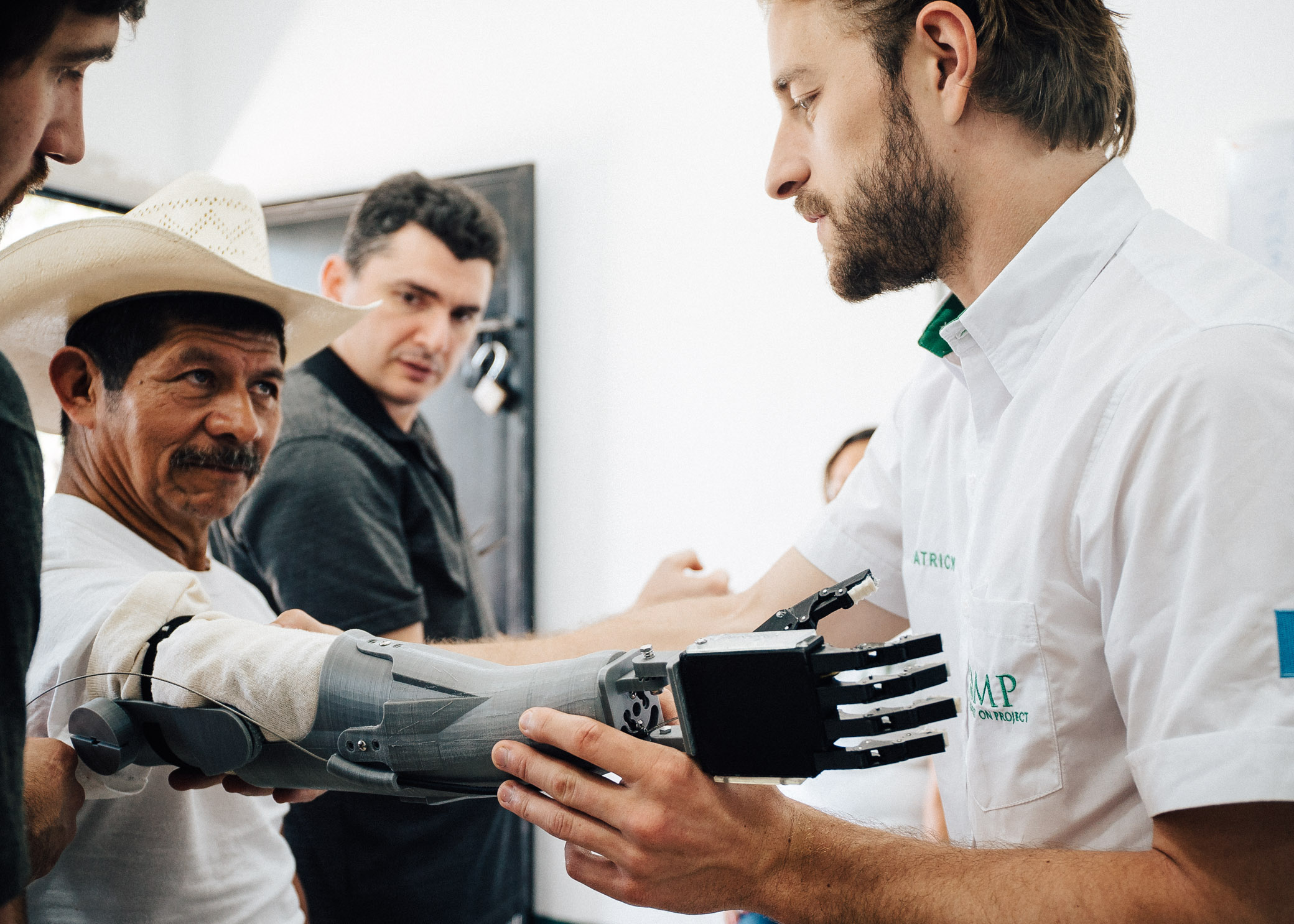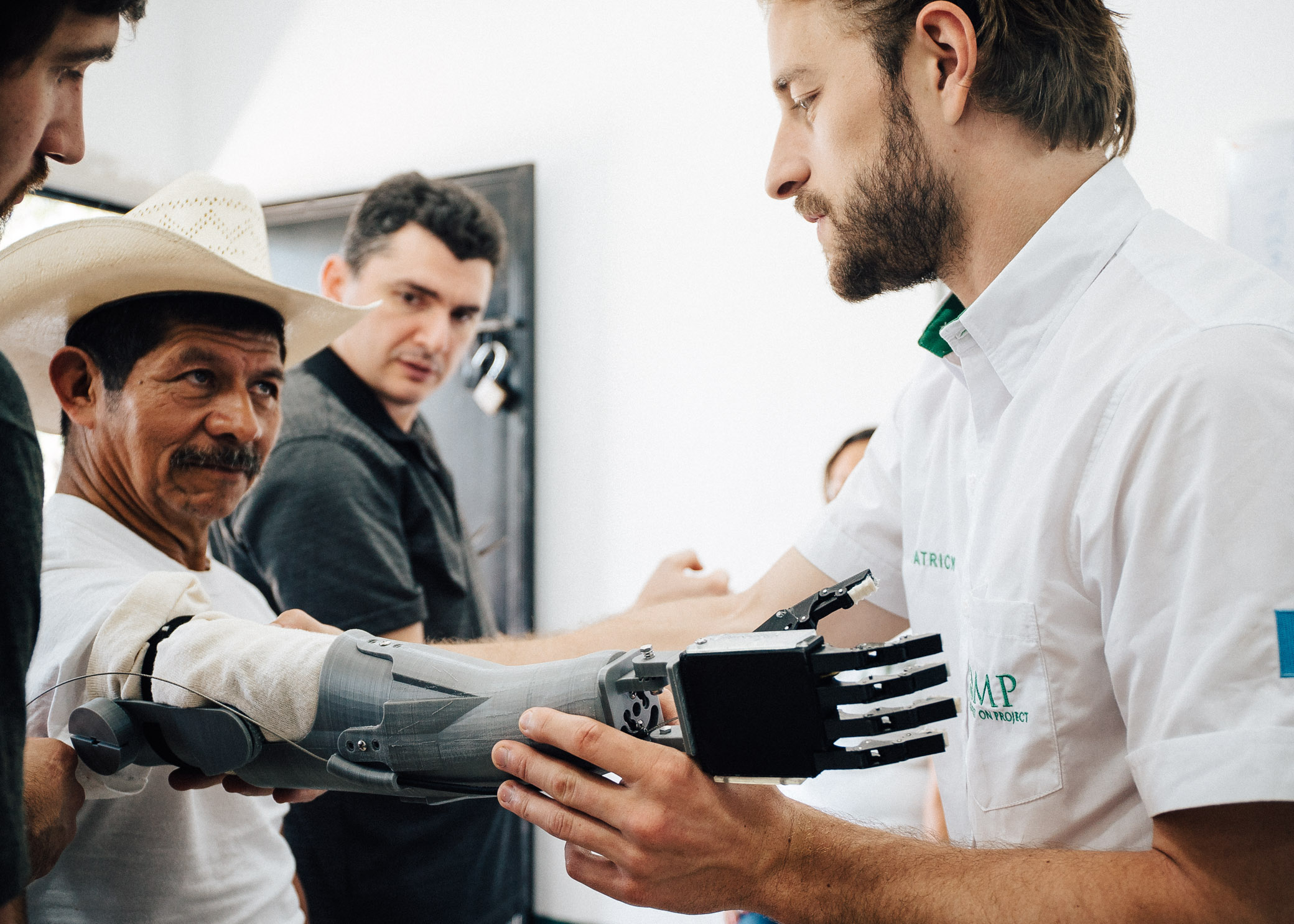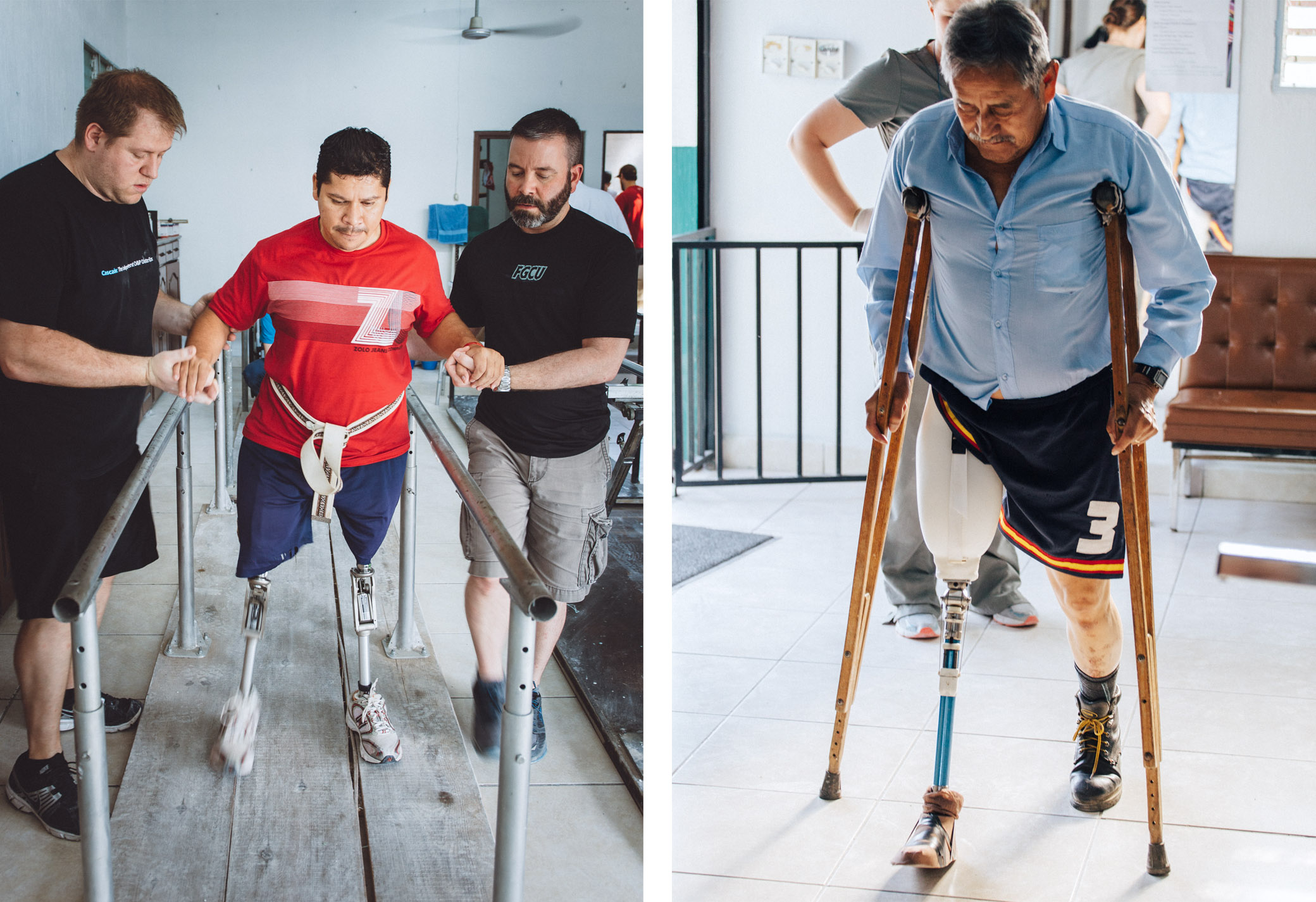The Local newsletter is your free, daily guide to life in Colorado. For locals, by locals.
When Eric Neufeld was in his residency for his master’s program in Prosthetics and Orthotics at Northwestern University, he witnessed firsthand how many patients suffer from an unnecessary disability. So in 2005, Neufeld and his classmate, David Krupa, created the Range of Motion Project (ROMP) to provide prosthetic fittings, devices, and therapy to patients in U.S. who don’t qualify for Medicare, as well as those in Latin America who don’t have access to these types of services.
“Our philosophy is that amputees remain disabled because of the missing prosthesis, not because of the missing limb,” he says.

According to the World Health Organization, more than 80 percent of amputees live in developing countries, and only 2 percent have access to prosthetics care. ROMP has opened clinics in Guatemala, Ecuador, and Mexico in order to provide these services for more individuals in need. Now in its 11th year, the organization has successfully provided more than 3,500 devices, and they’re currently working on a wait list of more than 400.
Now, ROMP has the opportunity to double its impact. In October, GoPro announced the Denver-based organization as a 2016 recipient of GoPro for a Cause, an annual holiday program in which the action-camera company matches every dollar donated between now and the end of the year.
To celebrate, ROMP is hosting a free fundraising event at the Space Gallery on December 6, with Latin-inspired eats such as a ceviche bar and a guacamole bar, sponsored by Big Red F restaurant group, which includes Highland’s Lola and Boulder’s Zolo Grill. There will also be an open bar, sponsored by Mile High Spirits, so you can snag a complimentary cocktail to pair with the premiere of a short film GoPro produced about some of ROMP’s most inspirational patients in Guatemala.
ROMP is hoping to raise $250,000 through the partnership with GoPro, which could provide nearly 500 devices. The average cost of a prosthetic limb in the United States—not including doctor and therapy appointments associated with fitting and rehab—is between $10,000 and $50,000. The nonprofit averages $519 per prosthetic by repurposing materials, which Neufeld collects himself, disassembles, and refurbishes for new patients
“People donate devices, usually from those who have passed away or maybe they are getting a new device,” Neufeld explains.
While the majority of ROMP’s patients come from developing countires—the organization has offices in Denver, Ecuador, where Krupa lives, and Guatemala—they still receive local referrals from Denver Health, as well as other medical centers. Find out more about ROMP and how you can donate or volunteer at rompglobal.org.
If you go: Register in advance for the free event; December 6, 7–10 p.m.; Space Gallery, 400 Santa Fe Dr.










